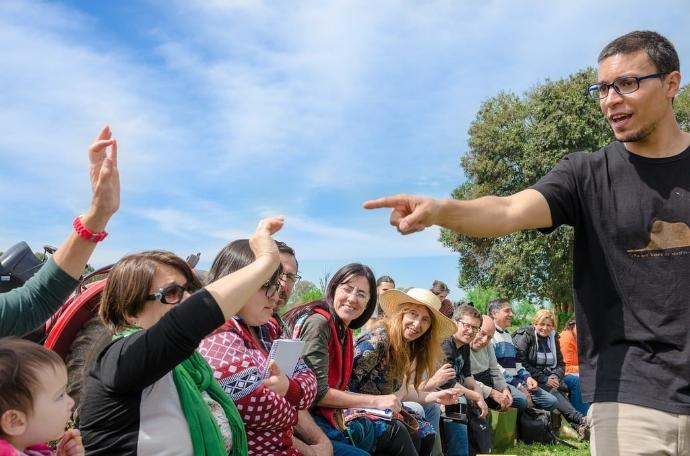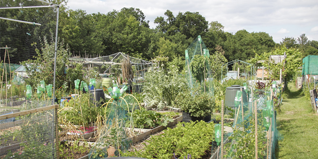Step 2:
Engage the Community
Community engagement is essential for effective climate action. Parish and town councils are in a unique position to mobilise local communities, raise awareness, and implement initiatives that reflect local needs and priorities. Engaging residents not only fosters support but also empowers communities to contribute ideas and take collective action towards sustainability.
Meet the Residents
Engaging with residents face-to-face in key community spaces can help councils better understand local concerns, expectations, and ideas for climate action. These interactions can provide valuable insight into specific issues and potential solutions.
-
Arrange informal conversations at high-traffic areas such as school gates, community hubs, and markets.
-
Organise ‘climate drop-in’ sessions where residents can share ideas and ask questions.
-
Host meetings in partnership with local environmental groups to encourage broader participation.


Conduct Surveys
Surveys are an effective way to gather input from a wide range of residents and ensure their views shape local climate action plans. Councils can use multiple platforms to distribute surveys and maximise participation.
-
Create online surveys using platforms like SurveyMonkey or Google Forms and promote them via social media and newsletters.
-
Generate QR codes linking to the survey and display them in popular locations such as noticeboards and newsletters.
-
Ensure printed versions of the survey are available at libraries, community centres, and local events.
-
Consider including a mix of open-ended and multiple-choice questions to gather diverse input.
Host Community Events
Organising events provides an opportunity to inform residents about climate initiatives and gather their input in a relaxed setting. Events can also help foster community spirit and collaboration.
-
Hold climate-themed events featuring guest speakers from organisations such as Friends of the Earth and The Transition Network.
-
Invite residents to participate in local initiatives, such as tree planting days and energy-saving workshops.
-
Offer interactive displays and activities to engage different age groups and make climate action more engaging.
-
Encourage partnerships with schools, businesses, and local organisations to increase reach and impact.


Organise People's Assemblies
People’s assemblies provide an inclusive platform for residents to deliberate on climate issues and contribute ideas in an informed way. Councils can facilitate these assemblies to ensure diverse representation and informed decision-making.
-
Include a range of community members and local experts.
-
Use facilitation techniques to encourage respectful and constructive dialogue.
-
Training and guidance on organising people’s assemblies can be accessed through Involve UK and The Democracy School.
-
Consider using assembly findings to inform council policies and initiatives.
Focus on Co-Benefits
Climate action delivers financial savings, improved health, and stronger communities alongside environmental benefits. Emphasising these wider benefits helps engage residents who may not prioritise sustainability, making local initiatives more inclusive and impactful. Parish and town councils can strengthen community involvement by using a mix of face-to-face meetings, digital tools, and outreach efforts to ensure climate initiatives are well-supported and aligned with local priorities.


Reducing energy use through energy-efficient measures can help households save money on bills while improving comfort and resilience to extreme weather. Borrow our Thermal Imaging Equipment to start conversations with your residents on home energy.

Highlight the health benefits of cleaner air and active travel options. Get involved in initiatives like Cycle September, and Cycle to School Week.

Establishing food pantries and community fridges can help reduce food waste, tackle food poverty, and build stronger community networks by encouraging residents to share surplus food and support those in need. Successful examples, such as Tetbury Town Council’s community fridge initiative, demonstrate how these efforts can foster sustainability and social cohesion.

Promoting local food production, like community gardens and allotments, can enhance food security, support local growers, and reduce transportation needs. Contact the National Allotment Society

Well-maintained parks, gardens, and other green areas provide opportunities for recreation, reduce urban heat, and support mental wellbeing by offering spaces for relaxation and social interaction.

Using insights such as Climate Outreach can help councils frame messages in ways that resonate with different community groups, making climate action more relatable and engaging.